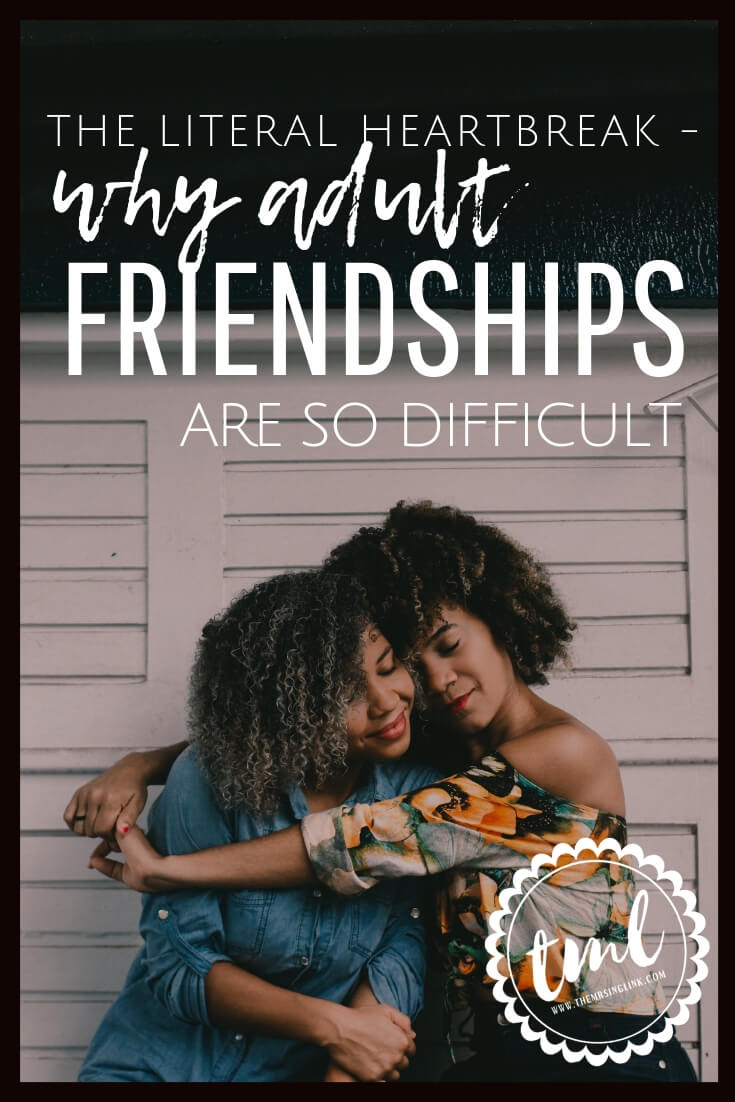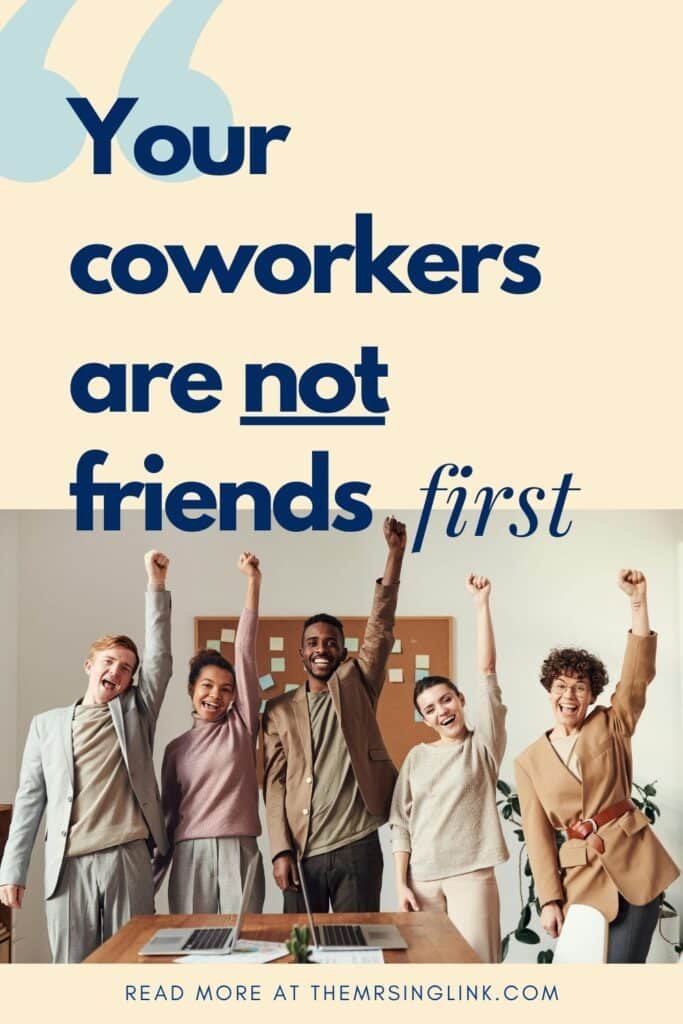Adult friendships are complicated today, and never seem to last.
Adulting is hard – fulfilling, no doubt, but it definitely brings a new perspective to life. Even making and maintaining adult friendships are difficult, and even harder to keep. They just rarely seem to last these days.
It shouldn’t be much of a surprise that friendships carry a whole new meaning in our adult life – making that little extra effort through grace, compassion, understanding, and acceptance for our interpersonal relationships to thrive and flourish. Piece of cake, I thought, entering college and starting a fresh, full-time job at 19.
LOL…
Let’s just say I’ve had to swallow a lot of my pride and slap my ego in check more times than I can count. It’s been far from easy.
Many will say friendships are one of the main aspects of a healthy [social] life. While I agree, many seem to be driven by the notion that friendships are required for our lives to be completely fulfilled. Hmmm, I don’t know about that one. I’d like to think that friendships are supposed to “compliment” life, not “complete” it.
Granted, my friendships at a young age got me through some of the toughest and best years, and were seemingly all I needed and depended on at the time. That’s fine, but what happens when real life begins – you know, the adulting part? I went from free-balling through the ease my friendships provided to suddenly wondering and realizing whether these friendships were actually genuine and if I even mattered to these people.
With that, I believe we can deprive ourselves of a lasting friendship as an adult due to predisposed conditions from adolescence, leaving us in more heartbreak and struggle than intended.
4 Reasons making adult friends is harder than ever

We allow distance to get in the way
Both in time and miles in-between.
I mentioned in my open letter to an estranged friend that time and distance should be no indicator, and that a friendship is also built on emotional investment. Some may find that going two weeks without talking to a friend has them thinking less of that person, or going two months without getting together makes them feel that friendship is no longer a priority. If that is true, this needs to be voiced before assumptions are built and resentment takes a hold.
This would have been my mentality in high school. There was simply no good enough reason or explanation for a friend to disappear from the radar for two weeks. Young with zero responsibilities then, I had far more expectations of those in my life.
This isn’t necessarily healthy, yet we all have them.
Fast forward 10+ years, a friend of mine I met through my previous job had to move multiple states away due to her husband being in the military. She was gone two years, and although I only saw her a couple of times during that two-year period, I can honestly say (in my eyes) our friendship was no less than it was before she left.
We both endured life-altering changes during that time – her becoming a mom, and me a wife. You could say we weren’t ever exactly on the same page, in fact, they actually conflicted. That meant we talked less – waaay less – as our busy lives and personal obligations left us going sometimes days if not weeks without speaking. But somehow it was as if we both had this mutual understanding and respect for one another’s priorities and life changes.
We didn’t allow the distance – in miles and time in-between contact – to dictate the meaning and value of our friendship.
It was the emotional effort and intention that made the biggest difference. And I fear this is often easily neglected in our adult friendships.

Commonality is estranged
You can probably remember a time in grade school when one of your friends got a new boyfriend or vice versa. More than likely you heard from and saw this friend less, or ceased interaction altogether until they broke up or started coming to you with their relationship problems. In adolescence, I feel like this was pretty inevitable. Like when a friend found a “new” group of friends to hang with, oftentimes it felt as if we lost them.
Nonetheless, there’s that sense of abandonment because you no longer share commonality [a closeness] with that person.
The thing is…this STILL happens as adults. One day that friend IS going to get married, they’re going to get busier (with school, work, travel, etc.), they’re going to have other friends, their schedule will be more structured with a baby, they’re going to prioritize other things (like sleep, self-care, family, relationships, time in general), and it may not always involve or revolve around – sorry – you.
Your paths in life WILL separate – you might be working your a** off on that big job promotion, while your friend is in the nesting phase and readily preparing to start a family. You could be going through a travel itch (go-go-go plans, checking off a bucket list of goals), while your friend is wanting to minimalize their life and time (spending/consuming less, living more slowly).
Maybe you’re just someone who loves going out, living it up, staying out late, and going big or go home, while your friend is no longer in that phase of life but would rather stay in and have a book club, get together and chat over coffee, or go to the farmer’s market first thing on Sunday morning.
With that, your commonality changes. Does that mean the friendship ends? No, it shouldn’t. It changes, but changes in commonality require both individuals to value that friendship in a different way. Yet one, single commonality never changes – that you’re both figuring out this whole “adulting” thing, which should bring you together.
When we’re still viewing friendship at face value, then there are bigger problems. If commonality dictates the value of adult friendships then that is preparation to endure short-term and ever-evolving acquaintances. The grade school days of cliques should be over, and we should be able to embrace connections with others who are on different wavelengths, playing fields, and paths in their lives.
[Related Read: 10 Gentle signs you’re outgrowing a friendship]
Failed reciprocation goes unnoticed
As if keeping the flame alive in our relationships isn’t enough work – imagine having to also tend to the embers of friendship. To some, this may be a no-brainer, but more often than not – at some point – there exists a battle between priorities. Certain things will be sent to the back burner, sometimes without even realizing it.
Friendship is a choice – like everything else you prioritize in life. This is also why I have stopped forcing friendships in my life. Yet each individual views and values friendship differently, not necessarily wrong. And this can be disheartening when it comes to reciprocity and mutual, equal effort. You might have a friend that’s perfectly able to go a month without being in contact, while you need some sort of connection more often – even if that’s a funny meme or 15-minute chat a few times a month. Neither are wrong, per say, but it’s questioning whether that’s the right friendship without feeling neglected, taken advantage or one-sided.
It’s also important to note that friendships are still a two-way street, yet they won’t always be equal. This includes reciprocity, and as adults, we have to be willing to extend more grace.
Therefore I learned not to take failed reciprocation to an unnecessary extreme, as long as it wasn’t persistent or intentional. Knowing there are times I fail to reciprocate, forget to text or call back, cancel plans last minute, or drop off the face of the earth due to life or personal struggle – I want my friends to see that I’m more understanding and empathetic than to keep tabs. I also want them to see me as human.
So instead of allowing my friendships to become such an attachment to my life, I no longer treat them as an accessory OR a necessity. This saves me from so much added disappointment and frustration, while I can enjoy more of the aspects of friendship that actually matter.

We’re less understanding and accepting all around
This year was a very difficult one for me, as much as it should have been a great one. It was my first year of marriage, yet just as they say – the first year can test you. And it did in all avenues. Not in all good ways, either. Overall, this first year tested my marriage, my friendships and family relationships, and my overall health (physically and mentally) due to multiple circumstances.
With that, it was probably the first time needing to rely on the strength of my friendships without my outward presence. I was distant, excusing myself from the outside world often in the many attempts to piece myself back together – however long that was going to take.
I didn’t want to burden others with my problems, or worse…I assumed those in my life didn’t really care to begin with. I guess this comes from never truly knowing what it meant to be able to rely on others to be there – through thick and thin – without the fear (or assumption) of losing them.
And that’s exactly what happened that year. And this wasn’t the first time, so I was fairly prepared.
It came as no surprise – there are those who “retract” at the sign of struggle that enters someone’s life other than their own. When I needed this person the most, it was like they said, “Oh, you’re going through some sh*t? Well, I got my own, so I’ll find someone else who is willing to put my struggles above their own.“
It can be difficult to go through rough times in life and feel as though your struggles are less important or compared to someone else’s and weighed heavily upon the quality and effort of that friendship.
Therefore, being more understanding and accepting in friendship is crucial – as they are not just a friend, but a person with their own feelings, opinions, choices, uncertainties, milestones, difficulties, hardships, and challenges outside the friendship. Whether any of those things fit the shape of friendship in your eyes – we, as adults, need to be more compassionate with one another’s humanity without making it personal.
I greatly noticed – even from my own behavior – that it’s very difficult to allow space in adult friendships. What I mean by this is the space to allow the friendship to expand and contract – this process can be both good, bad, or plain necessary for growth. Even if you can’t relate, support, or understand what a friend is going through…the ability to create a safe space for them (to simply be a person outside of being a friend) without judgment, resentment or contempt is one of the most mature qualities of genuine friendship.
We need to be more understanding that there are reasons why they…can’t commit to plans every weekend, don’t call back after a certain time, cancel last minute because their kid is sick, aren’t always the most [conveniently] reliable (to your expectations), have been distant due to marital or family issues, aren’t readily available for you at the drop of a dime, or need more than one text or phone call a month to feel like the friendship means something.
We’re imperfect creatures – our job is not to aim to please everyone, every time, all the time. In our adult friendships, it’s time to learn how to love, care and understand one another that isn’t strictly self-benefitting.